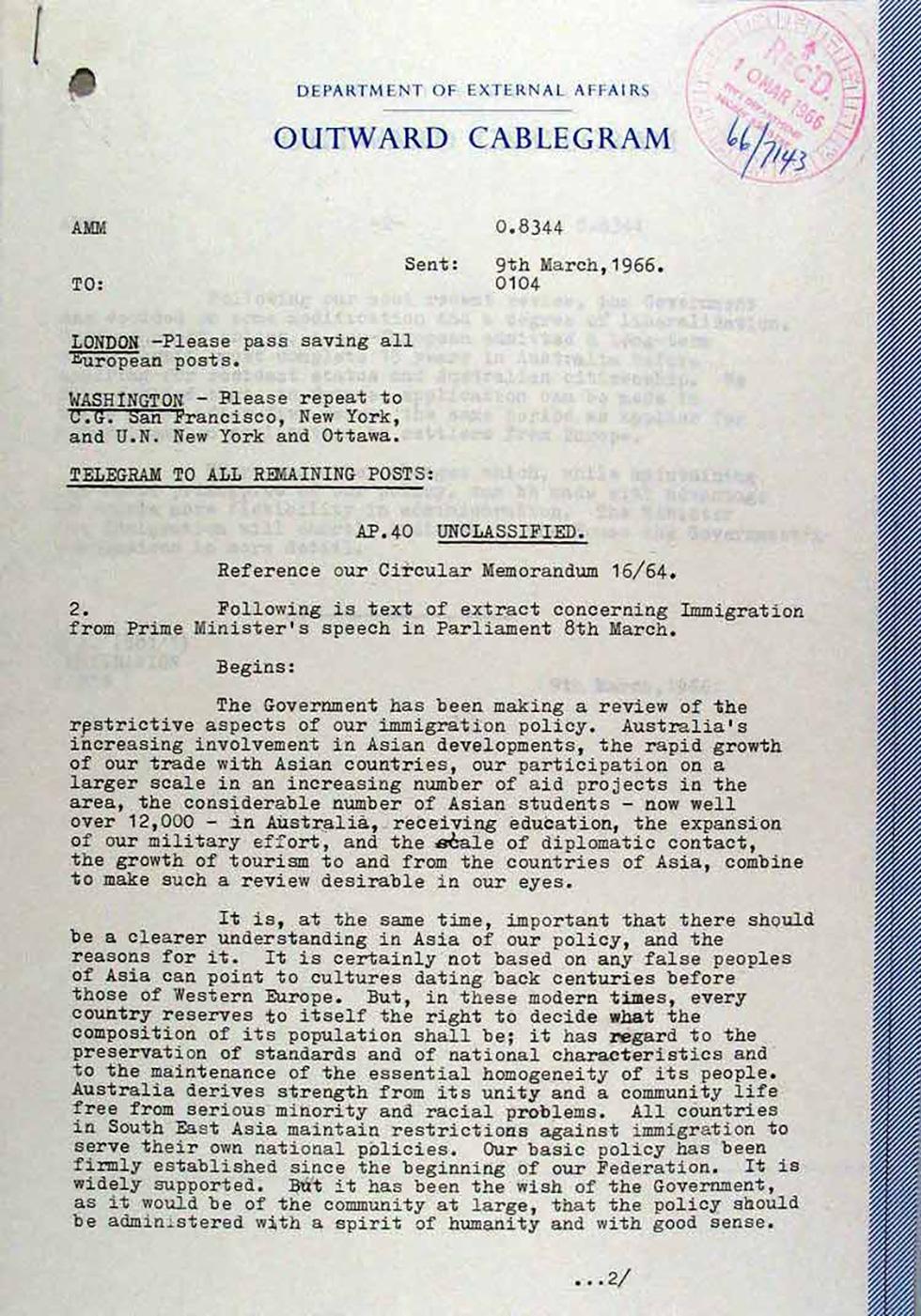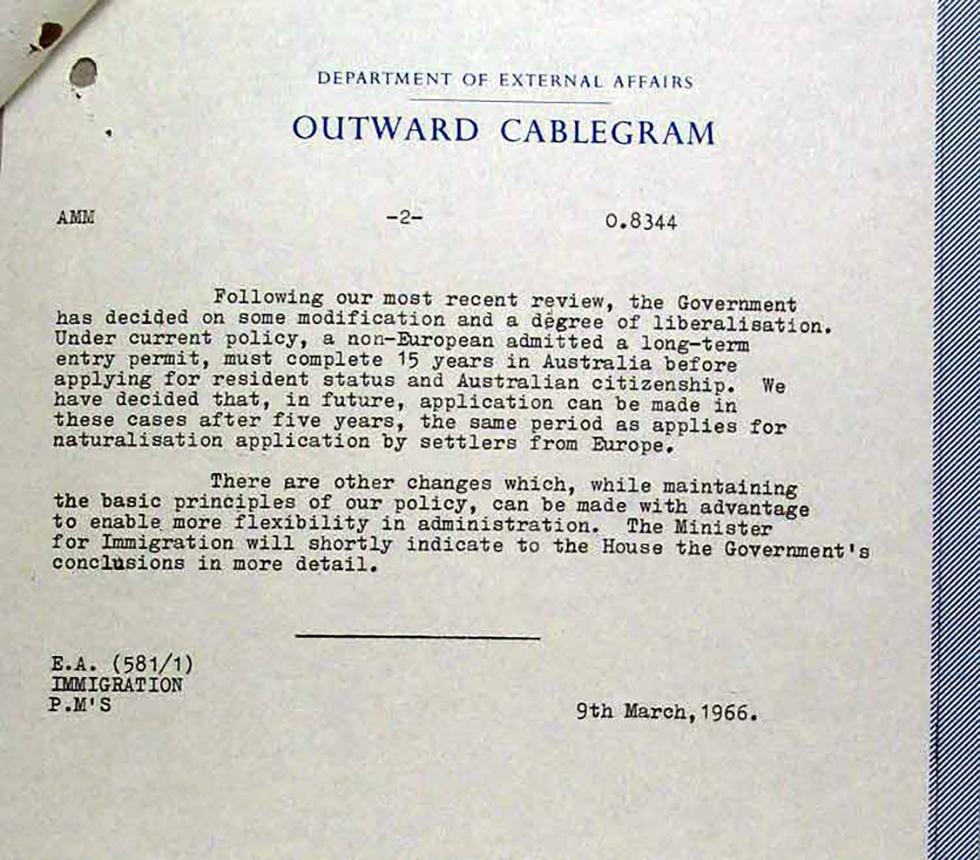
Cablegram message for all consular posts

Cablegram message for all consular posts
Aboriginal and Torres Strait Islander people should be aware that the National Archives' website and collection contain the names, images and voices of people who have died.
Some records include terms and views that are not appropriate today. They reflect the period in which they were created and are not the views of the National Archives.


Cablegram message for all consular posts

Cablegram message for all consular posts
[Letterhead in blue ink reads 'DEPARTMENT OF EXTERNAL AFFAIRS', 'OUTWARD CABLEGRAM'.]
[Stamped in red ink: 'REC'D [received]', '10 MAR 1966', 'PMS DEPARTMENT', 'SECRET REGISTRY', The number '66/7143' is written inside the stamp in blue ink.]
AMM
0.8344
Sent: 9th March, 1966.
0104
To:
LONDON [underlined.] - Please pass saving all European posts.
WASHINGTON [underlined.] - Please repeat to C.G. San Francisco, New York, and U.N. New York and Ottawa.
TELEGRAM TO ALL REMAINING POSTS: [underlined]
AP.40 UNCLASSIFIED. [underlined]
Reference our Circular Memorandum 16/64.
2. Following is text of extract concerning Immigration from Prime Minister's speech in Parliament 8th March.
Begins:
The Government has been making a review of the restrictive aspects of our immigration policy. Australia’s increasing involvement in Asian developments, the rapid growth of our trade with Asian countries, our participation on a larger scale in an increasing number of aid projects in the area, the considerable number of Asian students - now well over 12,000 - in Australia, receiving education, the expansion of our military effort, and the scale of diplomatic contact, the growth of tourism to and from the countries of Asia, combine to make such a review desirable in our eyes.
It is, at the same time, important that there should be a clearer understanding in Asia of our policy, and the reasons for it. It is certainly not based on any false peoples of Asia can [sic] point to cultures dating back centuries before those of Western Europe. But, in these modern times, every country reserves to itself the right to decide what the composition of its population shall be; it has regard to the preservation of standards and of national characteristics and to the maintenance of the essential homogeneity of its people. Australia derives strength from its unity and a community life free from serious minority and racial problems. All countries in South East Asia maintain restrictions against immigration to serve their own national policies. Our basic policy has been firmly established since the beginning of our Federation. It is widely supported. But it has been the wish of the Government, as it would be of the community at large, that the policy should be administered with a spirit of humanity and with good sense.
…2/
[Page 2].
[Letterhead in blue ink reads 'DEPARTMENT OF EXTERNAL AFFAIRS', 'OUTWARD CABLEGRAM'.]
AMM
-2-
0.8344
Following our most recent review, the Government has decided on some modification and a degree of liberalisation. Under current policy, a non-European admitted a long-term entry permit, must complete 15 years in Australia before applying for resident status and Australian citizenship. We have decided that, in future, application can be made in these cases after five years, the same period as applies for naturalisation application by settlers from Europe.
There are other changes which, while maintaining the basic principles of our policy, can be made with advantage to enable more flexibility in administration. The Minister for Immigration will shortly indicate to the House the Government’s conclusions in more detail.
[dividing line]
E. A. (581/1)
Immigration
P.M's
9th March, 1966.
Learn how to interpret primary sources, use our collection and more.
